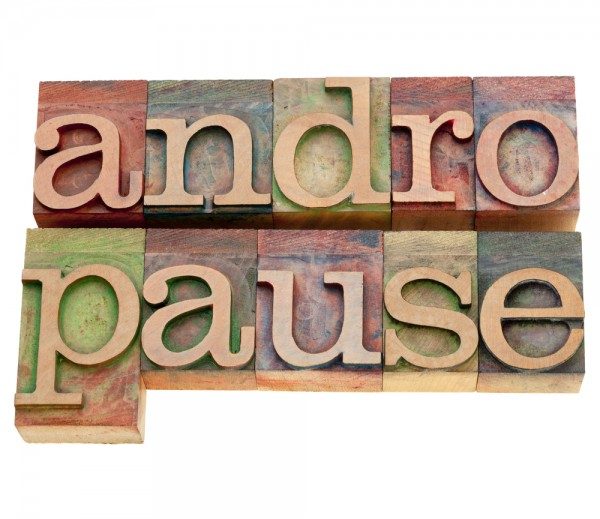Menopause marks the important transition or a change in person’s life. When the word menopause is mentioned, people usually think of night sweats and hot flashes that every woman has to experience.
However, women aren’t the only ones who go through menopause. In fact, men go through the change as well. Since this topic isn’t widely discussed, the primary purpose of this article is to provide useful information about male menopause and its symptoms.
Male menopause, does it really exist?
Male menopause was a subject of numerous discussions. While some scientists were convinced it’s real, others weren’t so sure. Professor Malcolm Carruthers chief medical officer at the Center for Men’s Health in London and team of researchers conducted a study to inspect whether male menopause was real or not.
Results of the study, published in the Journal of Aging, researchers estimated that about 20% of men older than 50 had a testosterone deficiency. This deficiency was closely associated with a wide array of symptoms. Author explained that findings of this study proved that male menopause or andropause is real.
Is male and female menopause similar?
Although one might think that both male and female menopause are quite similar (it’s menopause after all), reality is much different. In female menopause, ovulation ends followed by plummeting of hormone production in a shorter period of time. On the other hand, in male menopause testosterone levels and hormone production decline over a longer period of time. Due to the fact that hormone fluctuations and decreased hormone production occur slowly, signs and consequences of male menopause aren’t as clear as in women.
Scientists refer to male menopause as andropause and define it as aging-related hormone changes in men.
Symptoms of male menopause
Before you see male menopause symptoms you should bear in mind that every man experiences them differently or in different intensity. The most common signs and symptoms of andropause are:
- Low libido – testosterone is crucial for men’s sex drive which is why low libido is one of the most obvious symptoms of andropause. Regular intake of male enhancement supplements like Nitroxin helps to boost testosterone.
- Depression – testosterone helps regulate mood. With that being said, when testosterone levels drop, some men can become depressed
- Lack of energy – again, testosterone plays a big role in one’s energy levels as well. It helps your body maintain healthy energy levels which is why men in andropause usually feel like they are too tired even if they didn’t do anything during the day
- Insomnia – testosterone plays an important role in regulating sleep. Therefore, when levels of testosterone drop, you might experience insomnia or disrupted sleep.
- Osteoporosis – women aren’t the only ones who are at risk of getting osteoporosis. It can occur in men as well. Why? It is because testosterone helps your body maintain adequate bone density which is why if you’re going through andropause, your bones might be weaker.
- Abdominal fat – low testosterone levels and abdominal fat go hand in hand. Testosterone helps slowing down accumulation of abdominal fat. This means that when levels of testosterone drop, body fat will start accumulating at a faster rate. Then, with increased abdominal fat, enzymes start converting testosterone into estrogen thus lowering testosterone levels even more.
Other signs and symptoms of andropause include:
- Decreased muscle size and length
- Fewer spontaneous erections
- Nervousness and irritability
- Inability to focus
- Memory lapses
- Decreased confidence and self-motivation
- Tiredness
- Reduced endurance
- Breast enlargement.
How is andropause diagnosed?
If you experience symptoms listed above and suspect you’re going through male menopause, you should consult your doctor. In order to make a diagnosis, your doctor will perform physical exam and ask you about symptoms you experience.
Your healthcare provider might also order some other diagnostic tests in order to rule out medical problems. These tests will also include blood tests to measure testosterone levels.
How is andropause treated?
Male menopause treatment involves testosterone replacement therapy which can help you with fatigue, depression, and decreased libido. However, just like with hormone replacement therapy in female menopause, this therapy is associated with potential risks and side effects. Think thoroughly before you decide whether to try it or not and consult your doctor.
You can also relieve symptoms of andropause and go back to being your old self by making some lifestyle adjustments. For example:
- Seek professional help for depression
- Learn to manage and reduce stress, Improve stamina using various Fitness Trends
- Exercise regularly
- Quit smoking
- Take dietary supplements
- Limit alcohol intake
- Avoid unhealthy food and opt for healthy items
- Lose weight
- Consume plenty of zinc
- Limit or completely eliminate sugar from your diet
- Eat healthy fats such as olive oil or coconut oil.
Conclusion
Although male menopause is still subject of many discussions between scientists, the fact is that men do go through certain changes once their testosterone levels decrease. It is important to ensure healthy lifestyle that includes healthy diet and exercise. Before you start taking different products or therapies, make sure you consult your doctor first.
Related Video Showing relations between Depression and General Heath
References https://www.consumerhealthdigest.com/male-sexual-health/ https://www.healthline.com/health-slideshow/warning-signs-male-menopause#5
AuthorBio
Kelly Everson is an American author and having MA in English literature. After spending time as a writer in some of Health Industries best websites, she now works as an independent researcher and contributor for health news related website like Consumer Health Digest. In her spare time, she does research work regarding Beauty and Women Health, Fitness and lifestyle blogs, which acts as a fuel to her passion of writing. When she is not researching or writing, you can find Kelly staying active, whether it be practicing yoga or taking swimming classes. Connect with her on Facebook and Twitter.


































